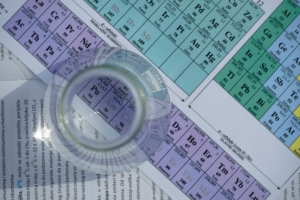Scientists crack down immune cells that promote fibrosis
So far, there is no cure to stop fibrosis, the pathogenic proliferation of connective tissue of the skin and in organs, in autoimmune diseases such as systemic sclerosis (scleroderma). An US-Italian research team has now identified the immune cells that trigger connective tissue disease.
In Science Translational Medicine, the team reported, that abnormal activity of plasmacytoid dendritic cells (pDCs) trigger inflammation and fibrotic remodelling in mouse models and tissue from patients with systemic sclerosis (SSc), a multisystem life-threatening fibrosing disorder that currently lacks effective treatment. The researchers from University of Palermo and HSS Research Institute in New York suggest that SSc patients may benefit from therapies that remove or attenuate pDCs, a subset of blood-roaming innate immune cells that trigger type I interferon immune responses.
Based on the observation that pDCs are known to infiltrate the skin and cause inflammation after injuries and in the autoimmune disease Lupus, first author Marie Dominique Ah Kioon profiled biopsy samples from SSc patients and healthy donors. In skin samples from SSc patients, Kioon and colleagues found elevated proportions of pDCs that were chronically activated and secreted a disease typical pattern of the proinflammatory cytokine interferon-? (IFN-?) and CXCL4. Furthermore, the pDCs from SSc patients produced the innate immune activating receptor TLR8, which is not expressed in pDCs of healthy people. Their results sugggest that the aberrant presence of TLR8 triggered expression of phosphatidylinositol 3-kinase ?, which activates CXCL4 potentiating TLR8-induced IFN production by pDCs.
In mouse models of SSc, depleting pDCs alleviated skin fibrosis, whereas artificially boosting TLR8 worsened disease. Removing pDCs by antibodies or attenuating pDC function could be a novel approach to treat SSc patients, the researchers conclude.




 SANOFI
SANOFI